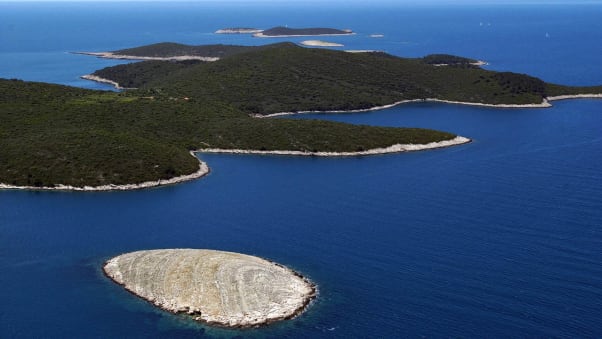While most nations in the European Union have kept their borders sealed against non-European visitors during the pandemic, Croatia has been receiving arrivals from the United States and many other countries.
Summer saw it allow just about anyone to vacation on its beautiful Adriatic coastline and enjoy its stunning islands and Dubrovnik, the city of “Game of Thrones.” Even now, visitors from outside the EU are welcome, as long as they are tested for covid-19 or quarantined.
Now Croatia is making things easier for people who want to stay longer: modifying its immigration laws to grant one-year residence permits to remote digital workers from outside the European Union, as long as they do not require tourist visas to enter.
While other destinations like Dubai have paid a price for keeping their borders wide open, Croatia is convinced that fostering tourism in the long term is a success.
The new rules began on January 1 and the first applicants have already arrived.
On January 15, American Melissa Paul had the unexpected honor of becoming Croatia’s first official digital nomad under the new law. Since then, she has been involved in a series of media interviews for national newspapers and television networks.
“In fact, I have worked remotely for 15 years, I own my own company, but I have contracts with companies all over the United States, the United Kingdom and Mexico,” she told CNN.
Paul, a marketing consultancy who produces websites, blog articles, newsletters, and manages social media for art and design businesses, events, weddings and hospitality, had already experienced life in Croatia before receiving his one-year permit.
Heartwarming quality
“When I moved to Croatia, being a digital entrepreneur allowed me to continue to earn a living while living and traveling the country and Europe,” she says.
Paul initially moved to Croatia with her Croatian-American husband, whose parents hail from the island of Krk. When the couple divorced, she learned that she did not have many options to continue living in Croatia as a resident. But the new law opened a window of opportunity for him.
She now runs her business from the kitchen table in a house in the hilltop walled town of Labin on the Adriatic Istrian peninsula in northwestern Croatia.
“Labin has a moving quality,” she said of her new home. “From the friendly people, the large number of artists that work here, as well as the mix of history, culture and modern industry. All in a beautiful, central location. It is perfect for me and I love it more every day.
European-style bureaucracy was something Paul was already familiar with, but the application process still involved a paper hunt.
“I knew the more prepared she was, the better,” she says. “But there were many documents that I had to provide detailing the work I do, where my clients are and showing that my company is active, I have the financial means to work independently, health insurance and a place to live. Since I’ve been a freelancer at the location for years, this was all easy for me to provide.
Paul sees her prolonged stay in Croatia as an opportunity to get to know the country better and experience it first-hand, “not in the rush of a few days, but slowly savoring it over months or years.”
A boost for Croatia’s tourism industry
The idea of introducing a residence permit for digital nomads was the brainchild of Jan de Jong, a Dutch businessman and investor who has lived in Croatia since 2006.
In July, he sent an open letter to Croatian Prime Minister Andrej Plenković on LinkedIn, outlining the potential economic benefits of welcoming remote workers.
Plenković got the message and, after consulting with De Jong, relevant changes to immigration law were adopted in December 2020.
For De Jong, welcoming digital nomads as long-term tourists is win-win for everyone.
“Croatia is a safe country with a Mediterranean lifestyle that many digital nomads will find attractive,” he says. “It is a very warm and welcoming country and the hospitality of the people is excellent.”
Then there is the weather, the amazing nature and more than 1,000 islands. People speak very good English. There is also a good internet connection and good travel connections with the rest of Europe. Lastly, life is affordable here.
At the same time, this new potential for year-round tourism could boost struggling local economies and Croatia’s tourism industry, which has been affected by the pandemic despite the open door policy.
Premises that rent to tourists and new businesses catering to digital nomads are ready to take advantage.
“Well-paid digital nomads will spend their income here, which will be great for the service industry,” says de Jong. “In addition, through the VAT they pay on everything they buy, they will generate additional income.”
LISTEN: Tourism: “In January, more than 20 destinations had an occupancy rate of over 80 percent”















